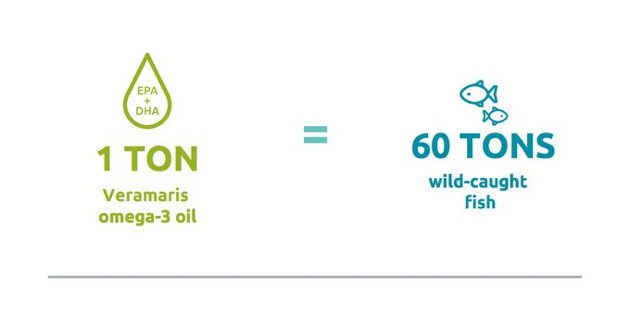F3未来水产饲料是一场由民间组织、科学家和私营企业联合发起的饲料创新运动,旨在加速创新性原料替代品的商业化,以用于代替传统饲料中的海洋鱼类成分。正值全球渔业资源持续衰退之际,水产饲料对海洋渔业资源的依赖无疑会影响到整个行业的可持续发展。
Impact
We have created a Forage Fish Savings Estimator to assist innovative ingredient companies, that can provide nutritionally equivalent replacements for fishmeal and fish oil, in calculating the number of forage fish saved. Based on our calculations, the first F3 contest saved approximately 350 million fish and the second contest saved over 2 billion fish.

“Fishmeal alternatives continue to be developed, like algae, bacteria from methane production or microbial proteins from carbon dioxide sequestration. We are trying to turn plant-based ingredients into animal-based ingredients… The trick is to make plant meal behave like fishmeal, not to turn carnivores into herbivores.
Fish do not require fishmeal. They require the nutrients that fishmeal happens to contain. That is why fishmeal has been used so much in aquaculture. If you take the fishmeal out, you must supplement with other ingredients to get the necessary nutrients, hence the need to develop other protein sources. If diets are formulated correctly and contain all essential nutrients, growth rate and feed efficiency will be good.”
History
1. Launched the F3 Fish-Free Feed Challenge in 2015 to create Fish Free Feeds, also called F3. The winner of this challenge was announced on Oct 3-4 at the Global Aquaculture Alliance in Dublin. The challenge was for an aquafeed company to either produce and sell the most seafood-free aquaculture feed using innovative formulations of proteins and lipids by the challenge end date, September 15, 2017, or be the first to reach 100,000 metric tons (mT) of seafood-free feed sales. Companies from Australia, Austria, China, Indonesia, Myanmar, South Africa, Thailand, and the U.S. competed. A list of companies that had sales of verified F3 feed products is here.
2. Held a meeting in the San Francisco Bay Area in Jan 2017 to facilitate networking between the contestants of Fish-Free Feeds and large feed companies. Discussions at this meeting prompted the development of our Feed Innovation Network, which encourages sustainable innovations in fish-free aquaculture feed ingredients by sharing experimental protocols, and directing ingredient companies to test facilities that can implement these protocols.
3. Launched the F3 Fish Oil Challenge.
4. In February 2019 we hosted the second F3 Meeting to bring together feed companies and contestants of the F3 Fish Oil Challenge. We are eager to see how these connections accelerate the use of fish oil substitutes in aquaculture and hopeful that the positive impact our challenge has had is only just the beginning. Check out highlights from the 2019 F3 Meeting here.
Supporting Organizations












Thanks to Anonymous Donors as well!
Past Sponsors



主席
| Dr. Kevin Fitzsimmons | University of Arizona | Former President World Aquaculture Society, Aquaculture and Integrated Farming Systems, Aquaculture Extension Specialist, Tilapia Expert, Fullbright Fellow |
Technical Advisory Panel
| Dr. Rick Barrows | Aquatic Feed Technologies, USDA/ARS ret. | Nutritionist, Feed and Fish physiology, F3 Chief Scientific Adviser Background, Publications |
| Dr. Roz Naylor | Stanford University | Food Security and the Environment, Economist |
| Dr. Hillary Egna | Oregon State University | Aquaculture and International Development |
| Dr. Michael Tlusty | University of Massachusetts Boston | Seafood Sustainability, Research Faculty in Aquaculture, Sustainable Seafood Policy and Management |
国际顾问
| Dr. Ling Cao | Shanghai Jiao Tong University, Stanford University | Sustainable Aquaculture/Policy and Management, China |
| Dr. Loc Tran | Nong Lam University, Shrimp Vet Laboratory | Disease Expert, Vietnam |
Coordination & Administration
| Dr. Barbara Page | Anthropocene Institute | |
| Kelly Alfrey | Anthropocene Institute | |
| Alex Driedger | Anthropocene Institute | |
| Annie Reisewitz | Strategic Ocean Solutions | F3 Media Liaison |

